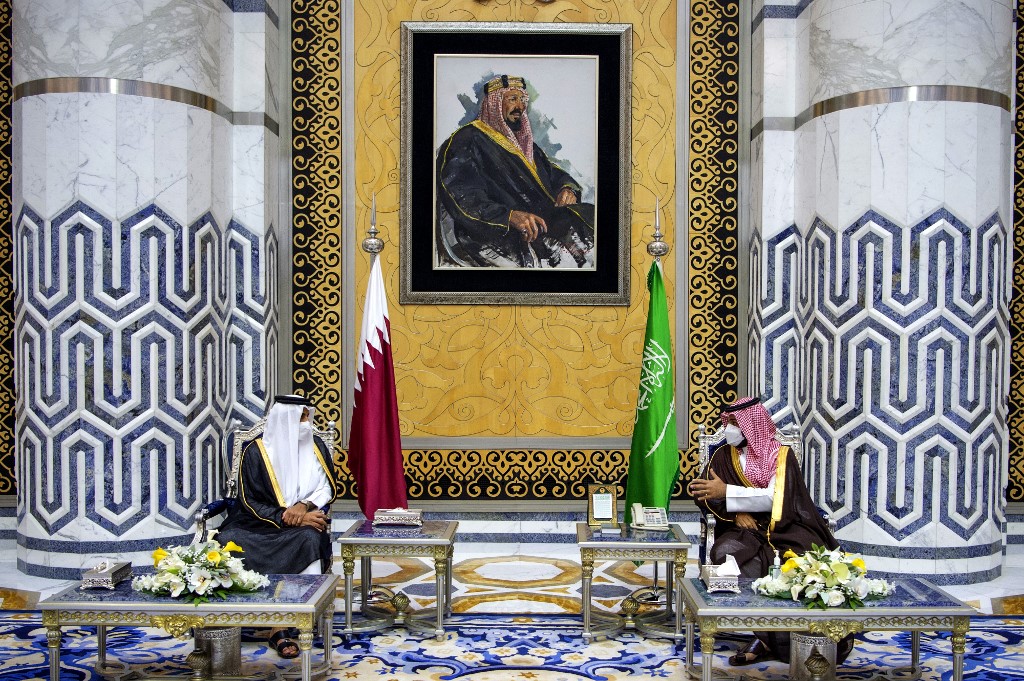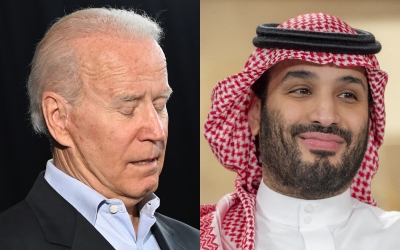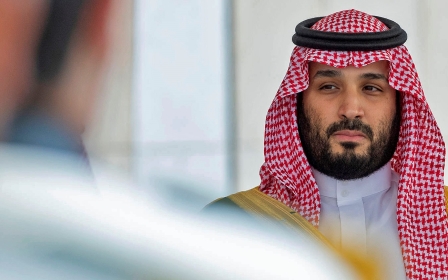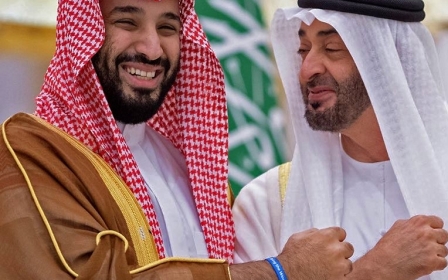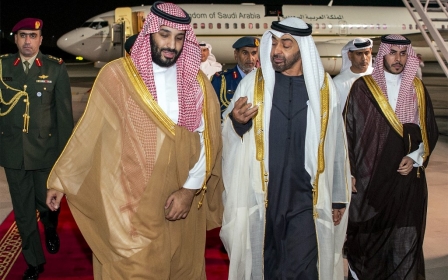Saudi Arabia: Mohammed bin Salman wants to come in from the cold
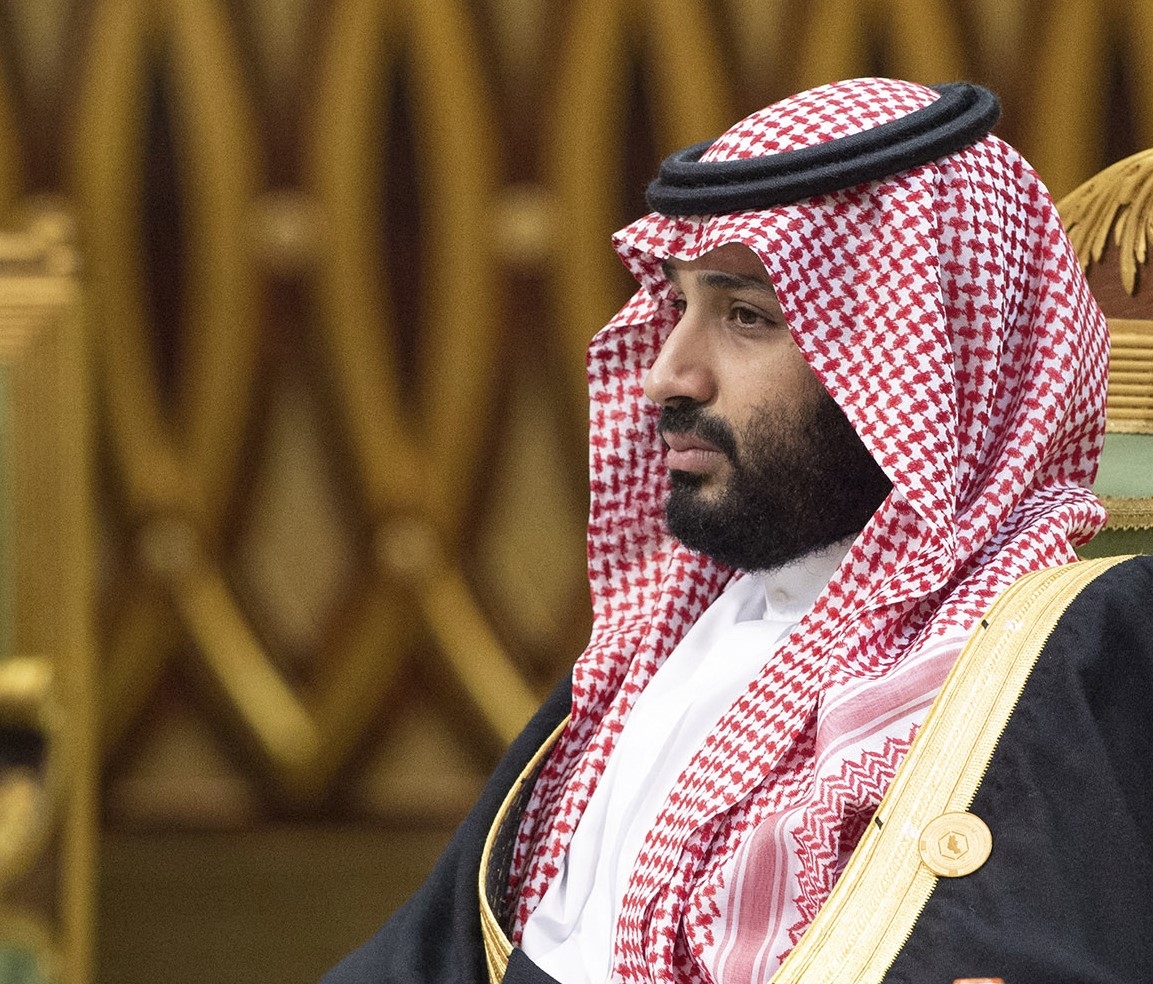
Three years ago this month, Saudi Crown Prince Mohammed bin Salman (MBS) suffered a devastating fall from international grace as his role in authorising the murder of Jamal Khashoggi inside the Saudi consulate in Istanbul slowly unfolded before the horrified eyes of the world.
As I argue in a new book, Mohammed bin Salman: The Icarus of Saudi Arabia, the magnitude of his fall was only amplified by the hero-like reception he had received on a three-week tour of the US in March and April 2018, during which he wowed the power elite of the American political and financial establishment, which initially embraced him wholeheartedly.
MBS's tense relationship with US President Joe Biden remains far more consequential, albeit for different reasons - starting with Khashoggi's murder
Since Khashoggi’s murder, MBS has been seeking assiduously to repair the damage to his reputation by trying to lure private western companies to come invest in one or another “giga-projects”, such as his $500bn Neom city, aimed at remaking Saudi Arabia into an ultra-modern nation. He has also sought, fitfully, to dig himself out of international disgrace by reversing course in a foreign policy marred by a steady stream of disasters that has seen his kingdom more isolated than ever before.
Under the protection of King Salman, his father, the 36-year-old crown prince has made noticeable progress in consolidating his power base within the royal family, and he seems genuinely popular with Saudi youth and women.
He has unleashed a distinctly secular social revolution with an avalanche of performances by western bands, singers and even female wrestlers, and ended the tight grip of the kingdom’s ultra-conservative Wahhabi establishment over Saudi society. He has also been chipping away at the guardian system, under which Saudi women have been stifled under their male “guards”.
Hard realities
Abroad, MBS has stopped trying to dictate who should be the prime minister of Lebanon, and become more serious about pursuing peace in the six-year Yemen war. He has also made progress in curbing his impulsive nature, backing off from establishing diplomatic relations with Israel, despite his own predilections and enormous pressure from the departing US Trump administration to do so.
He has also yielded to some of the hard realities on the ground, such as learning that tiny Qatar, his gas-rich Arab neighbour, did not have to succumb to a Saudi-initiated land, sea and air blockade that aimed to force it to line up behind Saudi foreign policies.
In January, MBS lifted the blockade, and he has since tried to make amends with Qatar’s emir, Sheikh Tamim bin Hamad Al Thani, whom he sought to overthrow for several years.
Yet, MBS continues to chart a course towards a police-state dictatorship of unprecedented scope and ferocity. He has silenced not only his Wahhabi clerics, but everyone even slightly critical of him or his policies, even on social media. The latest example is the extraordinary 20-year prison sentence imposed by a state counterterrorism court and recently upheld on appeal against Abdulrahman al-Sadhan, a humanitarian aid worker whose satire about the economy on Twitter earned him MBS’s anger.
Abroad, MBS has seen Saudi involvement in Yemen result in multiple setbacks. There seems to be little chance that the Saudi-backed international Yemeni government will ever take back control of the capital, or the entire north, from the Iranian-supported Houthi rebels. Its most important ally, the United Arab Emirates, has not only withdrawn from the Saudi-led coalition; it is also supporting a secessionist movement in southern Yemen.
Saudi Arabia’s core local security alliance used to be the Gulf Cooperation Council, composed of the six Arab Gulf monarchies. But it can no longer be described as “Saudi-led”, now that the UAE has followed Kuwait, Oman and Qatar in going its own way, and only Bahrain remains subservient to Saudi diktat. The UAE recently even challenged Saudi leadership of the Organization of the Petroleum Exporting Countries, pushing for higher production quotas than Saudi Arabia had proposed.
Iran's nuclear ambitions
Now, MBS has declared his intention to displace the UAE as the regional headquarters of foreign companies. He has told them that if they want a share of the tens of billions of dollars in annual business with the Saudi government, they will have to establish their base of operations in the kingdom. This is a direct challenge to Dubai and Abu Dhabi, the two main UAE cities where the ease of living (and drinking) has drawn most foreign companies to base their headquarters.
MBS’s tense relationship with US President Joe Biden remains far more consequential, albeit for different reasons - starting with Khashoggi’s murder. Biden has not fulfilled his campaign promise to render MBS a “pariah”, but he has kept him from visiting the White House and not even bothered to appoint a US ambassador to Riyadh. He has also suspended the sale of “offensive” US weapons to Saudi Arabia, at least until it finds a way to end its involvement in the Yemen war.
This presumably means the Biden administration will not sell to Saudi Arabia the most advanced US warplane, the F-35, which it has already cleared the UAE to purchase. MBS could opt to purchase instead Russia’s rival aircraft, the Su-35, or the Russian S-400 air defence system. But this could well lead to a permanent deep chill in US-Saudi relations, and even sanctions, if the Countering America’s Adversaries Through Sanctions Act was to be applied.
Iran looms as another potentially highly divisive issue in MBS-Biden relations. The Biden administration may reach an agreement restoring the participation of both the US and Iran in the 2015 nuclear accord from which former President Donald Trump withdrew. In that case, China and Taiwan would replace Iran as its main focus, and the “pivot away from the Middle East” - much feared in Riyadh - would likely accelerate.
On the other hand, if there is no US-Iran agreement - an outcome both Israel and Saudi Arabia much prefer to prevent Biden’s “pivot to Asia” - then events on the ground could push a reluctant Biden and an anxious MBS towards doing business together once more. Biden has declared an Iranian nuclear bomb to be a red line, and Israel is already pressing him to draw up “Plan B” for military action to stop Tehran from crossing it.
The Saudi crown prince is acutely aware of Biden’s Asian priority, his search for nuclear detente with Iran and strong distaste for him personally stemming from Khashoggi’s murder. He faces the daunting task now of having to chart a new course in the 75-year-old US-Saudi relationship in which the United States is fading away as the keystone of the kingdom’s security.
The views expressed in this article belong to the author and do not necessarily reflect the editorial policy of Middle East Eye.
Middle East Eye propose une couverture et une analyse indépendantes et incomparables du Moyen-Orient, de l’Afrique du Nord et d’autres régions du monde. Pour en savoir plus sur la reprise de ce contenu et les frais qui s’appliquent, veuillez remplir ce formulaire [en anglais]. Pour en savoir plus sur MEE, cliquez ici [en anglais].



